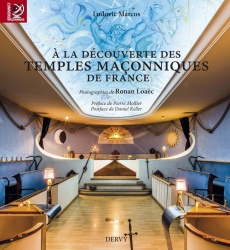
Reason, we are told, is what makes us human, the source of our knowledge and wisdom. But, if reason is so useful, why didn't it also evolve in other animals? If it is that reliable, why do we produce so much thoroughly reasoned nonsense?
In their ground-breaking account of the evolution and workings of reason, Hugo Mercier and Dan Sperber set out to solve this double enigma, taking us on a journey from desert ants to modern scientists, and from Aristotle to Daniel Kahneman. Reason, they argue with a compelling mix of real-life and experimental evidence, is not geared to solitary use, to arriving at better beliefs and decisions on our own. What reason does, rather, is help us justify our beliefs and actions to others, convince them through argumentation, and evaluate the justifications and arguments that they address to us.
In other words, reason has evolved to help humans better exploit their uniquely rich social environment. This illuminating interpretation of reason makes sense of strengths and weaknesses that have long puzzled philosophers and psychologists - why reason is biased in favour of what we already believe, why it may lead to terrible ideas and yet is indispensable to spreading good ones. Ambitious, provocative, and entertaining, The Enigma of Reason will spark debate among psychologists and philosophers, and make many reasonable people rethink their own thinking.
Read more at https://www.penguin.co.uk/books/183625/the-enigma-of-reason/#ChClxYMxR31cC3dj.99
Reason, we are told, is what makes us human, the source of our knowledge and wisdom. But, if reason is so useful, why didn't it also evolve in other animals? If it is that reliable, why do we produce so much thoroughly reasoned nonsense?
In their ground-breaking account of the evolution and workings of reason, Hugo Mercier and Dan Sperber set out to solve this double enigma, taking us on a journey from desert ants to modern scientists, and from Aristotle to Daniel Kahneman. Reason, they argue with a compelling mix of real-life and experimental evidence, is not geared to solitary use, to arriving at better beliefs and decisions on our own. What reason does, rather, is help us justify our beliefs and actions to others, convince them through argumentation, and evaluate the justifications and arguments that they address to us.
In other words, reason has evolved to help humans better exploit their uniquely rich social environment. This illuminating interpretation of reason makes sense of strengths and weaknesses that have long puzzled philosophers and psychologists - why reason is biased in favour of what we already believe, why it may lead to terrible ideas and yet is indispensable to spreading good ones. Ambitious, provocative, and entertaining, The Enigma of Reason will spark debate among psychologists and philosophers, and make many reasonable people rethink their own thinking.
Read more at https://www.penguin.co.uk/books/183625/the-enigma-of-reason/#ChClxYMxR31cC3dj.99
Reason, we are told, is what makes us human, the source of our knowledge and wisdom. But, if reason is so useful, why didn't it also evolve in other animals? If it is that reliable, why do we produce so much thoroughly reasoned nonsense?
In their ground-breaking account of the evolution and workings of reason, Hugo Mercier and Dan Sperber set out to solve this double enigma, taking us on a journey from desert ants to modern scientists, and from Aristotle to Daniel Kahneman. Reason, they argue with a compelling mix of real-life and experimental evidence, is not geared to solitary use, to arriving at better beliefs and decisions on our own. What reason does, rather, is help us justify our beliefs and actions to others, convince them through argumentation, and evaluate the justifications and arguments that they address to us.
In other words, reason has evolved to help humans better exploit their uniquely rich social environment. This illuminating interpretation of reason makes sense of strengths and weaknesses that have long puzzled philosophers and psychologists - why reason is biased in favour of what we already believe, why it may lead to terrible ideas and yet is indispensable to spreading good ones. Ambitious, provocative, and entertaining, The Enigma of Reason will spark debate among psychologists and philosophers, and make many reasonable people rethink their own thinking.
Read more at https://www.penguin.co.uk/books/183625/the-enigma-of-reason/#ChClxYMxR31cC3dj.99
GUARDIAN BOOKS OF THE YEAR 2017
'Original and provocative ... likely to have a big impact on our understanding of ourselves' Steven Pinker
'Mercier and Sperber offer a surprising and powerful response to the new orthodoxy propounded by Kahneman and Tversky ... arguing that the supposed flaws of hot, fast, automatic thinking are actually design features which work remarkably well' Julian Baggini
Reason, we are told, is what makes us human, the source of our knowledge and wisdom. But, if reason is so useful, why didn't it also evolve in other animals? If it is that reliable, why do we produce so much thoroughly reasoned nonsense?
In their ground-breaking account of the evolution and workings of reason, Hugo Mercier and Dan Sperber set out to solve this double enigma, taking us on a journey from desert ants to modern scientists, and from Aristotle to Daniel Kahneman. Reason, they argue with a compelling mix of real-life and experimental evidence, is not geared to solitary use, to arriving at better beliefs and decisions on our own. What reason does, rather, is help us justify our beliefs and actions to others, convince them through argumentation, and evaluate the justifications and arguments that they address to us.
In other words, reason has evolved to help humans better exploit their uniquely rich social environment. This illuminating interpretation of reason makes sense of strengths and weaknesses that have long puzzled philosophers and psychologists - why reason is biased in favour of what we already believe, why it may lead to terrible ideas and yet is indispensable to spreading good ones. Ambitious, provocative, and entertaining, The Enigma of Reason will spark debate among psychologists and philosophers, and make many reasonable people rethink their own thinking.
Allen Lane
Published 6th April 2017
416 Pages
Penguin books
25 BP


